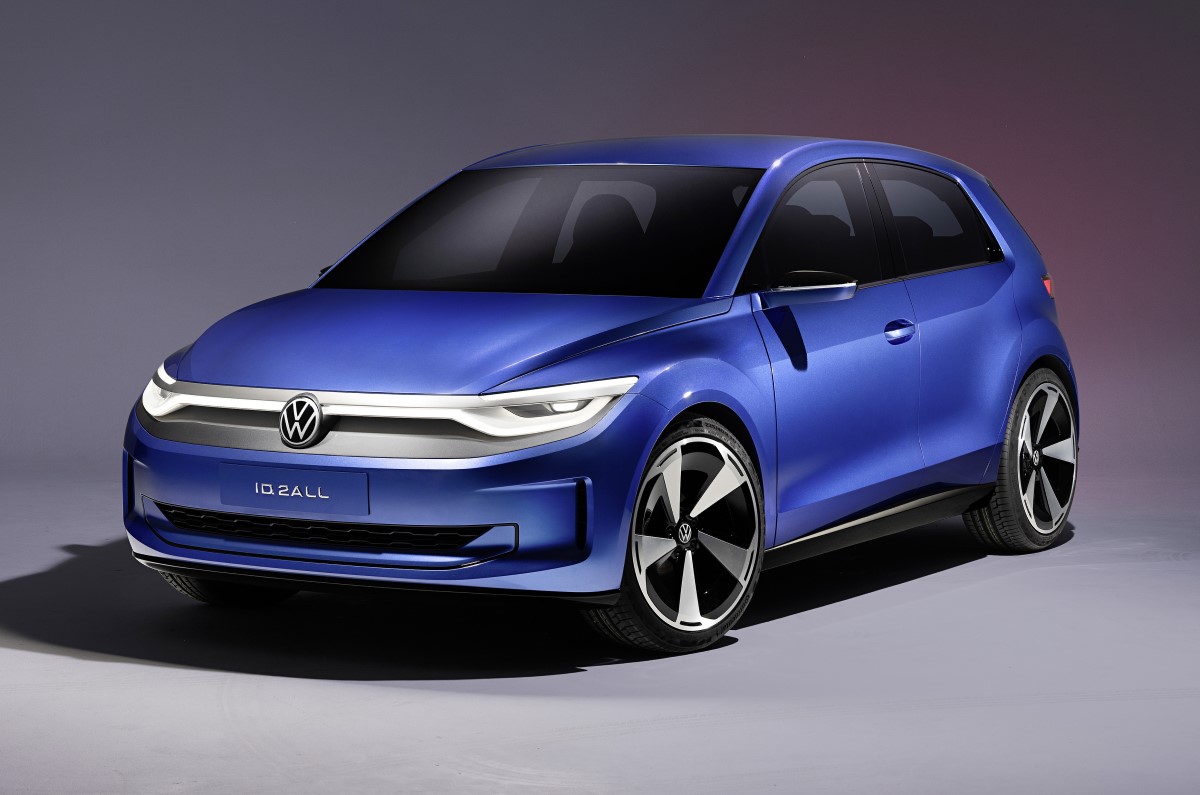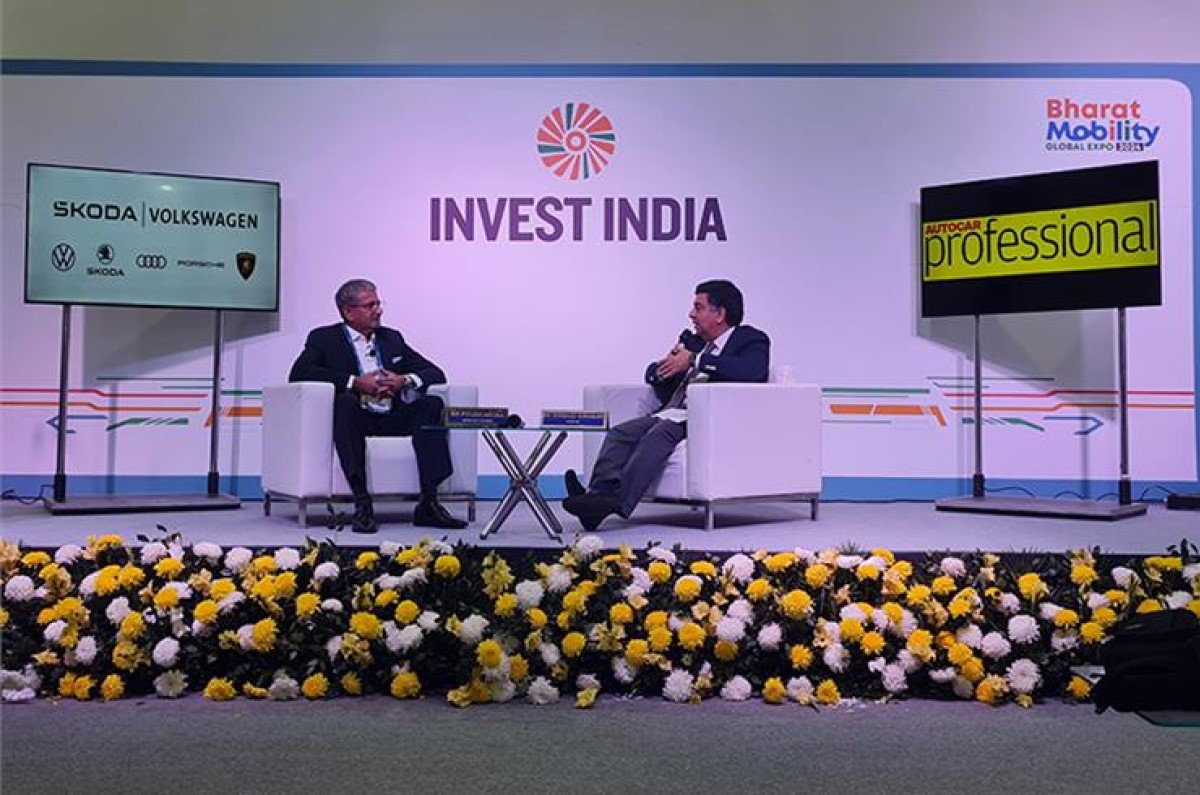The Volkswagen Group is actively looking at an entry-level electric vehicle for India, which will call for fresh investments in the country. The company is looking to introduce a mass-market EV, developed specifically to cater the needs of the Indian market, as well as offer a strong export potential. With that in mind, Skoda Auto Volkswagen India is targeting to introduce an entry-level EV in the market towards the second half of the ongoing decade.
- VW Group’s India electrification and ICE strategy to have overlap
- To justify triple-digit million euro investment, volumes to be critical
- Export opportunities will help bring in the volumes required
In a fireside chat at the Invest India pavilion at the Bharat Mobility Show in New Delhi, Piyush Arora, MD and CEO, Skoda Auto Volkswagen India, said, “Our strategy for electrification in India would not be very different from our ICE strategy. Therefore, we would focus on both India-specific as well as global products for the Indian market. We are looking at a localised product to cater to the voluminous entry-level EV segment in India. It is something that we are evaluating, and it would also require significant investments,” he mentioned.
Arora said that for introducing EVs in India, the Volkswagen Group will have to invest "in triple-digit million euros", and that the carmaker would require substantial volumes to justify the huge investment. Therefore, export potential of such a product would be critical, and the company is currently conducting feasibility analysis by also considering export opportunities of the made-in-India EV.
"To justify the investment, volume and scale has to be critical, and therefore, we are looking at opportunities to export them from India as well," he told Autocar India Editor, Hormazd Sorabjee, conducting the interview.
As we had exclusively reported earlier, VW's PEAK EV project is set to bring an EV SUV to India by 2026. Sources had told us that it’ll be based on the localised MEB21G architecture and the core focus is likely to be in the entry- and mid-size SUV segment. The first SUV EV is likely to get a Volkswagen badge – with a potential of volumes of 5,0000 units – for both domestic and export markets. Unlike the Group’s ICE strategy, the EV will get a Volkswagen badge first, with Skoda getting a derivative later.
Meanwhile, Skoda is exploring the MQB A0 37 platform for localisation in order to bring larger, more premium and tech-heavy models to the Indian market, and is working on bringing a compact SUV to the country based on the MQB A0 IN platform.
VW Group: exports from India a key pillar
For Skoda Auto Volkswagen India, exports have been a critical pillar of its presence in the country. For instance, the Volkswagen brand has used India as a base for exporting its midsize Vento sedan in the past to countries like Mexico, and South Africa, among others.
“We have actively leveraged India's local skill sets and automotive ecosystem to export cars out of India. In 2023, we produced 1.6 million cars, and exported 6,00,000 units – around 30 percent of our total production. While most competitors are around the 15 percent mark, and with the government's direction of targeting over 25 percent export, we are already there,” Arora said.
With the Skoda brand under its umbrella, the German automotive group is now looking at building a strong presence in South East Asia and GCC countries as well. “While South-East Asia is a key market, we are also looking to commence exports of the Skoda Kushaq and Slavia to Vietnam next year. We are actively looking for newer exports markets for Skoda as well as Volkswagen. Export potential is definitely a part of the agenda when we conceptualise a new product for India so that we are able to take advantage of economies of scale,” Arora pointed out.
The carmaker pins strong hopes on EV exports from India as part of its future growth plans and says the South-East Asian market could be a key destination for made-in-India EV exports. “We are looking beyond Vietnam, and it will be part of the agenda of (an EV designed for India). For EVs, customer preferences in India and South-East Asia are quite similar. This is the thought process we are looking at, so that we have the economies of scale. We have a potential in these markets as part of our feasibility,” added Arora.
He mentioned that considering VW Group's robust global strength and strong distribution network, the carmaker is well placed to leverage exports of made-in-India cars to other suitable markets.
Also see:
New Volkswagen Tayron revealed, replaces Tiguan Allspace



